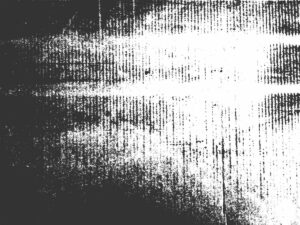It may seem a bit self-serving for an editor to write an article about why self-editing doesn’t work. After all, if authors edited their own manuscripts, there would be no point in hiring a professional editor, and I would be out of a job. This work is my bread and butter. It’s how I get paid.
But I’m not just an editor. I’m also a published author. Having been on both sides of the argument, I understand why it seems easier (and more cost-effective) to just do the work yourself. You’re spending months—sometimes even years—with your text, and no one knows your vision better than you. If you’ve read your manuscript seven times already, you couldn’t possibly have missed any conceptual or formatting errors.
Right?
Self-editing is and always will be a delectably tempting concept. Who doesn’t want to dig deep into the weeds of their masterwork and save a few bucks in the process? However, I’m always first to come clean about how my author and editor hats interplay in my own work. Full disclosure: they don’t. I never edit my own work and always send my manuscripts to another professional before they hit the press.
In other words, even editors have editors.
You’ll see all sorts of articles about self-editing and even authors who claim that following a bulleted checklist is the same as hiring a professional.
Now, don’t misunderstand me. I’m not saying that self-editing as a concept is inherently bunk. You should always be growing, changing, and challenging your own writing, drafting and redrafting while polishing your work to the best of your abilities. Editing, no matter how it’s done and who does it, is about putting your best foot forward. You want your manuscript to look as clean and professional as possible before sending it to agents, editors, and/or a publishing platform for others to read.
No manuscript, no matter how many times it has been edited, will ever be perfect. But editing isn’t about perfection. It’s about showing up the way you want to show up. The work you showcase is a direct reflection of you as an author, and if it’s riddled with errors, inconsistencies, and typos, that reflection might not be the one you were hoping for.
If you’re preparing to get your work in the hands of discerning readers of any kind, it pays to be professional and ensure your publication is of the same quality and caliber as the millions of other publications competing for your audience’s attention.
Trust me when I say that if I, as a professional editor, could achieve that level of polish by self-editing my own work, I would be the first one to do it. But I can’t, and you can’t either. Based on hard experience and over a decade in the biz, here’s why self-editing doesn’t work.
Reason #1: You’re too close to your work.
If you’ve been in the game for any length of time, you’ve probably been told to “kill your darlings,” an adage that actually comes from William Faulkner, not Stephen King. The axing of the beloved is a tough but necessary way to conceptualize the tendency writers have to become enamored with their own work. And why shouldn’t you be? The story is yours. No one knows it better than you. The vision is clearer in your head than it is in anyone else’s; when you read your writing, it makes perfect sense.
Fear not. A good editor isn’t here to lob off fictional heads just for kicks and giggles. A seasoned professional is going to work with you rather than tell you what to do, and part of that involves challenging you to look at certain aspects of your manuscript in different ways.
Anyone who has done any sort of public speaking knows that even the most meticulously rehearsed speech can be bungled under the spotlight. The clean, coherent narrative we hear in our heads might not perfectly translate to the words on the page. Of course, you know what you’re talking about, but just because an idea, plot thread, or character makes sense to you doesn’t mean that your readership will necessarily be able to follow along.
As an editor, I won’t tell you how to “fix” your story. I’m going to invite you to take a step back from your screen and see things from a new perspective—dig deep into the whys behind the whats of your work.
Sometimes, that outside perspective grants us the insight we needed but were too myopic to realize. Other times, that new take affirms the reasoning behind our gut reactions. No matter what the case may be, a keen editorial eye will challenge your perspective and grow you as a writer.
Reason #2: You can’t see what you’re not looking for.
Is it a meticulously balanced vase or a meticulously-balanced vase? Farther or further? Lay, lied, or laid? The falling action or dénouement of the plotline? A casual brand mention or copyright infringement?
Self-editing doesn’t work because you don’t know what you don’t know—that is, you won’t catch an error unless you know that error is erroneous in the first place.
Take a minute to recall every nitpicky grammar rule you learned in grade school. Now take a minute more to consider how many characters, plot threads, and subtle details go into a full-length novel. Even if you did manage to miraculously catch all the errors in your manuscript (trust me, you won’t), those are only the errors you’re aware of.
I’ve been editing for over a decade now, and I still run across pedantic rules, norms, and obscure precedents I have to research. Even when I do find answers, often, they’re stylistic or subjective. This is why anyone who claims that their “x-step checklist is all you need to flawlessly edit your book” is full of straight HOGWASH. No list, no matter how long or comprehensive, could ever hope to address every single issue in your manuscript.
Think about it this way. Lawyers study the law for years, but we still have judges to arbitrate and interpret specific (sometimes even unprecedented) situations.
You may not know what you don’t know, but a good editor, even when they don’t know, is going to dig into the research and advise you on best practices.
Reason #3: Your brain literally doesn’t work that way.
Ever wonder why you cna raed tihs? 0r th1s? Or evn s0mthng lk thi$?
When we read typos, mixed-up letters, or even random symbols, our brains do us a solid and fill in the gaps. We use context clues and past experiences to puzzle out meaning without knowing we’re doing it. This, in my opinion, is the biggest reason self-editing doesn’t work. Sure, it can be difficult to step back and objectively assess your own manuscript, but even with an unclouded eye, your instincts are working against you.
Believe it or not, this is the very thing that trips up editors too. Even after going through an 80k-word manuscript with a fine-toothed comb, there is always something I missed. Every other editor I’ve worked with has yet to deliver me a perfect manuscript. And if you pick up your favorite novel, more often than not, somewhere, somehow, there’s bound to be an error.
Most people are unaware that traditionally published books go through multiple rounds of editing. After several passes for content, plot work, and grammar, the edited manuscript is sent to a proofreader, then advanced readers. Even after all those eyes, you don’t have to look far to find egregious typos in Pulitzer Prize-winning books. Karen Harper using “wonton” instead of “wanton” in The Queen’s Governess has to be my personal favorite.
What can I say? Editing a book takes a village, but someone in that village is bound to drop the ball eventually.
Writing can seem like a lonely, individualistic task, but editing works best as a team effort. The reasons why self-editing doesn’t work are the same reasons why draconian dictatorships aren’t particularly healthy for anyone involved. By hiring a professional editor, you’re hardwiring a system of checks and balances into your own work. A trustworthy, seasoned professional will skillfully (and kindly) pull back your writing blinkers to show you what you need to make your story the absolute best it can be.
If you would like to learn more about what professional editing can do for you, please give me a ring.


